The Biblical Festivals
Please note that this article may contain affiliate links. As an Amazon Associate, I earn on qualifying purchases at no additional cost to you. You can read more at the bottom of this page or read my full disclosure on my Affiliate Disclosure Page
There are 3 reasons God has given the Biblical festivals. While these are Jewish feast days, they are also Biblical feasts believers can read about and study in the Word.
Learning more about them and the rich meaning they hold can help Christians grow in their own faith and Messianic Jews to continue in their traditions. Yeshua never came to form a new religion. He was a Jewish Rabbi. He celebrated the Sabbath and these festivals.
God gave His people His festivals, which can also be seen as Messianic festivals (Messianic = of the Messiah) for three reasons:
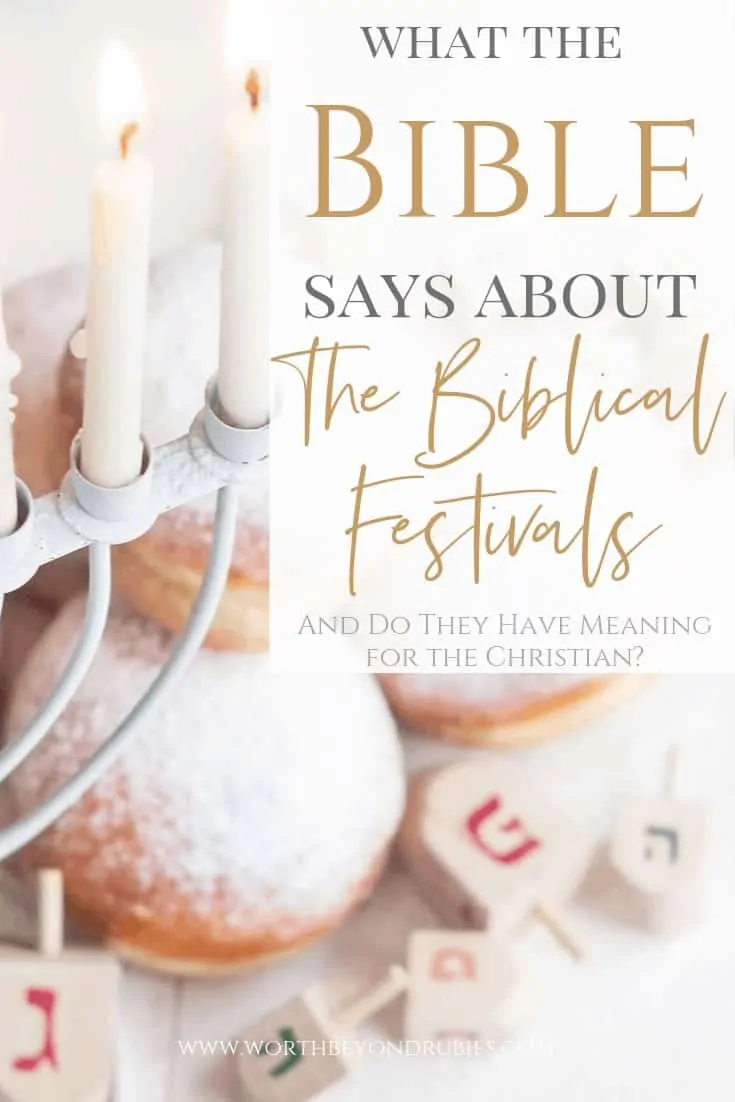
Biblical Festivals – To Remember a Past Event
When God told the Israelites to keep the Biblical feast of Passover, it was to be a remembrance.
It was to recall how God led His people out of slavery and bondage and into freedom and the Promised Land.
Sukkot, the Feast of Tabernacles, is to recall how the Israelites lived in temporary dwellings for 40 years as they wandered through the wilderness, sustained by God Himself.
So these Biblical festivals help Jew and Gentile alike see and recall God’s saving power and miraculous provision in the lives of His people.
Biblical Festivals – To See Hashem Working in the Lives of His People Today
The Biblical festivals help us reflect on how the Lord is working in our lives today!
We can often see Him working today much like He did in the lives of the children of Israel. You can see His provision, His mercy, His justice. We see Him free us from our bonds.
We now see the work of Messiah in our lives and how He saved us from sin and death and brought us into our Promised Land.
Hashem is the same yesterday, today and forever. What He did for His people then as pictured in the Biblical feasts, He will do for us today!! He is always with us! He is unchanging!
God is the same yesterday, today and forever. What He did for His people then as pictured in the Biblical feasts, He will do for us today!! Click To TweetWe can see the power of the Ruach HaKodesh, the Holy Spirit, guiding us and leading us in the way we should go much like the cloud by day and the pillar of fire by night guided the Israelites in the wilderness.
God is always at work in the lives of His children and the Biblical festivals demonstrate that.
Biblical Festivals – To Paint a Picture of Future Events
Finally, the Biblical festivals are a foreshadowing of future events.
The Feast of Tabernacles is believed to be a sort of foreshadowing of Yeshua’s birth and how He tabernacled among men. We see Him coming again to call us to Himself and to celebrate the Marriage Supper of the Lamb.
The Sukkah is a picture of the marriage chuppa where we will be wed to our Bridegroom Yeshua and live with Him in the place He prepared for us.
Rosh Hashanah, the Feast of Trumpets, is the beginning of the Jewish new year and one of my favorite Biblical festivals! But it has much more meaning than just that!! The shofar, the trumpet, is sounded! The Bible tells us that when Yeshua returns the trumpet will sound and He will gather His elect.
Matthew 24:31:
“He will send out his angels with a great shofar; and they will gather together his chosen people from the four winds, from one end of heaven to the other.”
CJB
You can read more about Rosh Hashanah and how it is a picture of Jesus’s return at my blog post the Feast of Trumpets!
You can also read more at this guest blog post Imani Ackerman wrote for us on the topic of the Biblical Feast of Trumpets and the tradition of Taschlich!
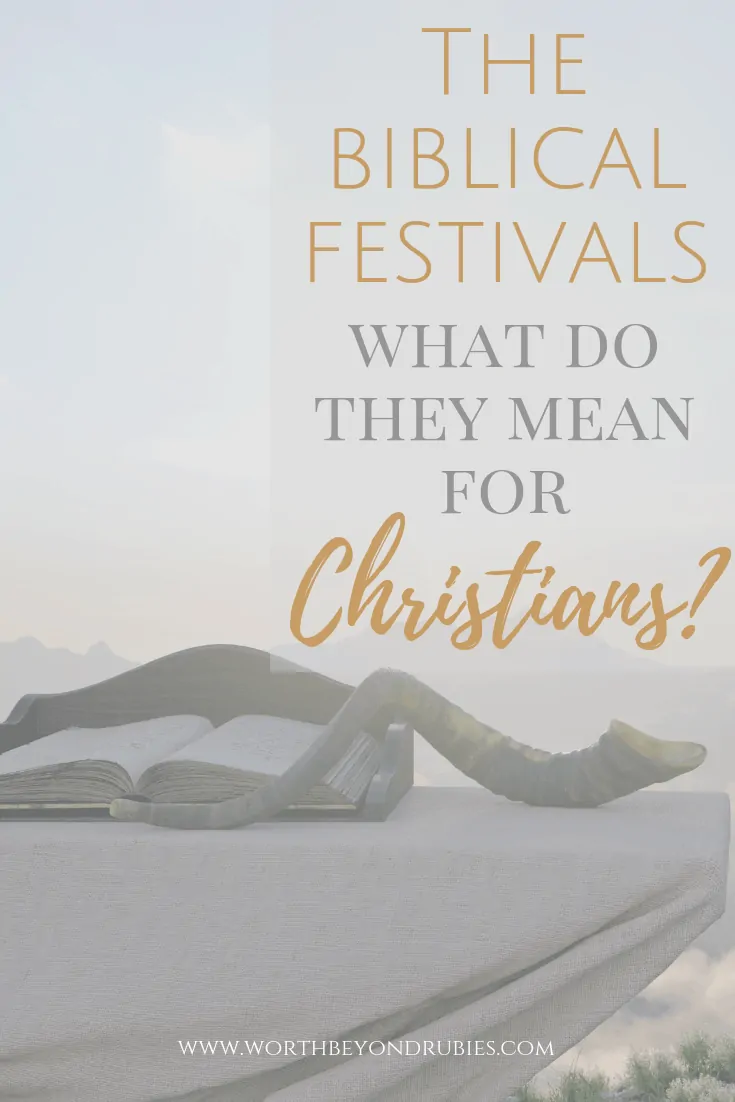
A Remembrance
The Biblical festivals help the Jewish people, like myself, celebrate the past, present and future works of God in the world!
As a Messianic Jew, each time we celebrate one of the Biblical festivals, it gives us the opportunity to see how God, from the beginning of time, had a plan. Every festival not only has its place in the time when God commanded it to be observed, but they have just as much significance today!
Each time Messianic Jews sit at the Passover table we can see how God not only rescued the Jewish people from slavery in Egypt, but how He rescued us today from slavery to sin and death.
Taken from the Complete Jewish Bible by David H. Stern. Copyright © 1998. All rights reserved. Used by permission of Messianic Jewish Publishers, 6120 Day Long Lane, Clarksville, MD 21029. www.messianicjewish.net.
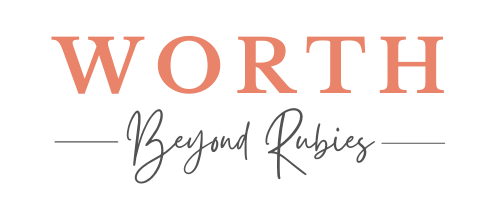
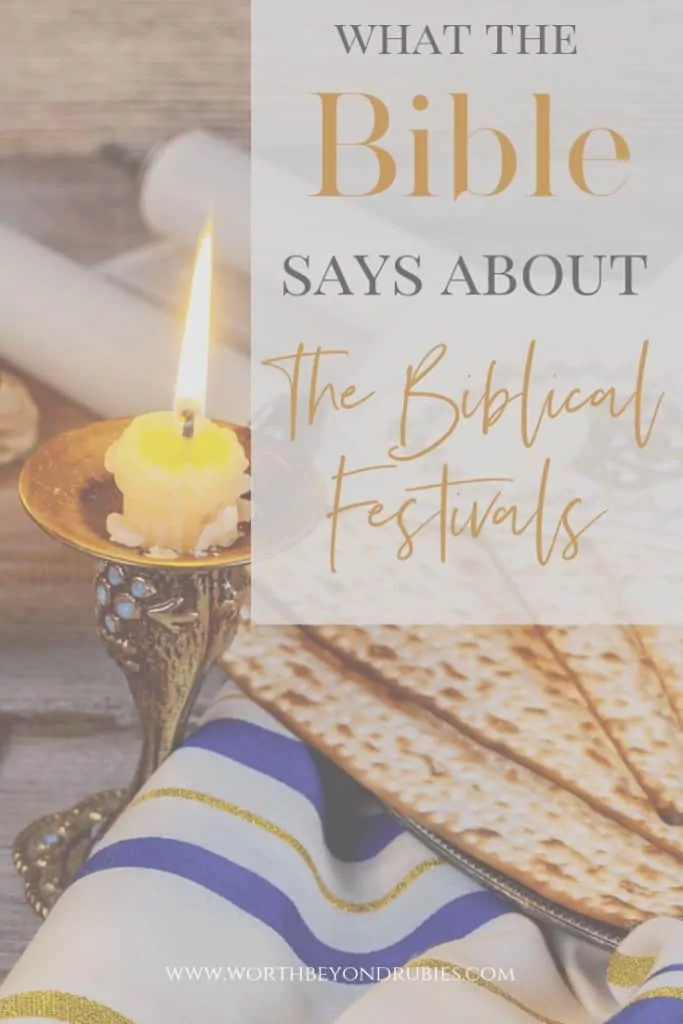
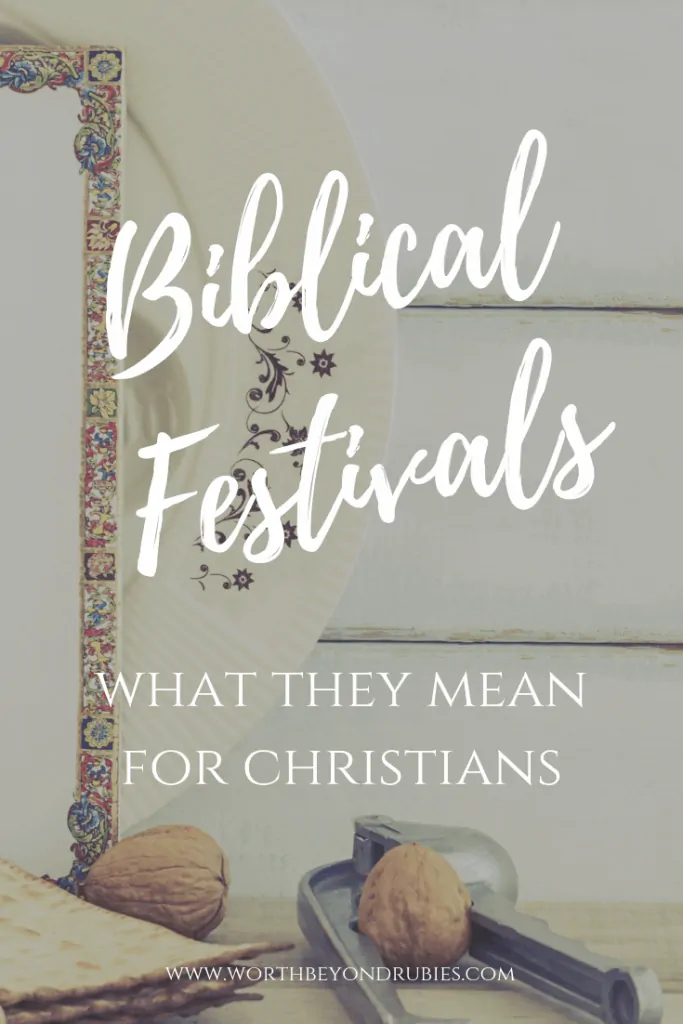
Thanks Diane, waiting for that trumpet, praying for souls. It is important to reach Jewish people with the Good News of Christ.
Yes it is! Thank you Rebecca!
The ‘new testament ‘ has to be read in Jewish perspective. The Gospel is Jewish. That is what the church doesnt (want) to understand. The Messiah is a Jew. There are only the Feast of Adonai. Thanks for the post.
AMEN Ruben!! I could say AMEN to that all day long. Yeshua lived a Jewish life, kept Jewish festivals, He davened, the apostles continued to go to the Temple after His resurrection. Jewish life for them did not stop! Thank you for this!
I loved reading about the festivals. Thank you for sharing with all of us over on the Grace and Truth Link-up.
Thank you Maree!!
Could someone help me understand WHY GOD will turn the Feasts days into mourning? Amos 5:21, Amos, 8:10, Hosea 2:11 & Isaiah 1:14. I thought it was to celebrate. I was in a discussion with someone and they were saying that IF the Church is Raptured one of the FEASTS DAYS (Feast of Trumpets, Day of Atonement and Feast of Tabernacles the RAPTURE is what brings about the mourning. Any thoughts?
These verses pertain to Israel’s times of mourning due to their sins and are not related to a rapture at all. Isaiah for instance is known as having two distinct sections which are referred to as 1 Isaiah and 2 Isaiah in Judaism and by religious scholars. This is because the first part of Isaiah (prior to Chapter 40) is written about a time of judgment and a time of mourning and exile for Israel. This is commemorated during a period of mourning known as Tisha B’Av where Jews fast and remember the destruction of the two Temples and also the exile of the Jewish people. 2nd Isaiah (after Chapter 40) is known as the chapters of consolation, which is where the restoration of Israel is prophesied and the people are consoled. So these pertain to Israel and not the church or a rapture. The Messianic Era will be a time of peace and not mourning.
It’s interesting to read about the Jewish festivals. Thank you for writing about it. It definitely makes me think about the celebrations that I grew up with vs the celebrations that we read about in the bible.
Greetings, Marjan
I am so glad you enjoyed it!!
I am a Christian and I LOVE this! We do a sedar meal on Passover, and you are so right im going to start studying the other festivals, Jesus celebrated them so why wouldnt we! I love this. And what i love more than anything is when people of different faith can come together in love and even cooler when we can agree on things like this <3
I am so glad you want to learn more! Let me know if I can be of any help! I also have a discipleship group on Facebook that you can join where I will be doing more about this and I am also going to be interviewing one of my professors who just wrote a book coming out soon called Finding Messiah: A Journey into the Jewishness of the Gospel! You can find the group at https://www.facebook.com/groups/womenofworthchristian
I am a Christian and my sons and I celebrate the all of the feasts!….. I will admit we are still new to celebrating them but they are beautiful and we are so thankful to learn as much as we can.
I am happy to hear you are learning from the festivals and I hope you continue to find the beauty and meaning in them and I know your sons will grow up appreciating them so much!